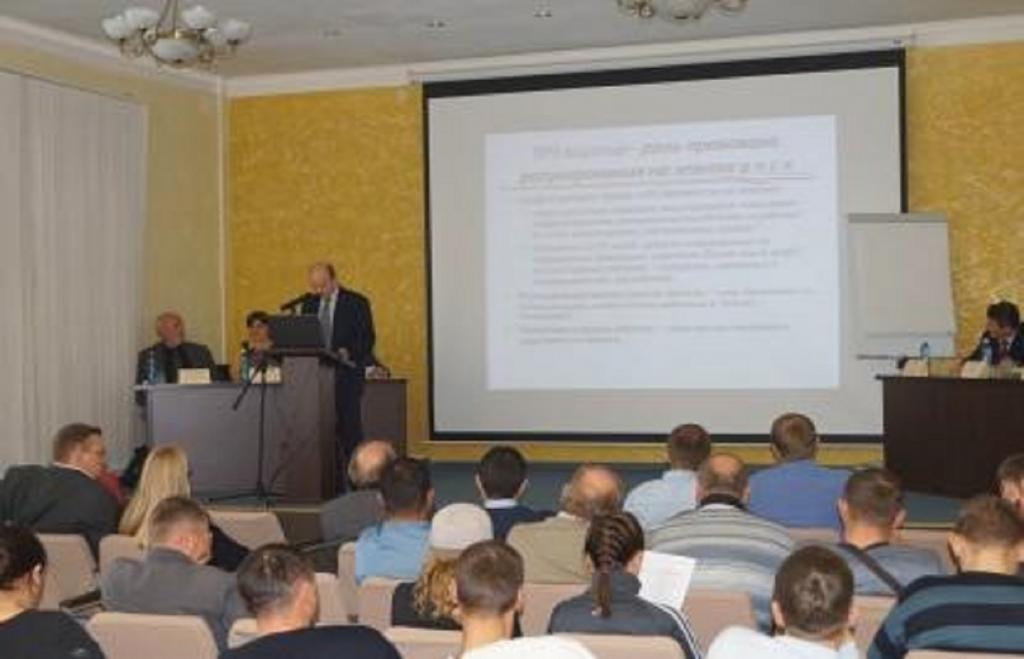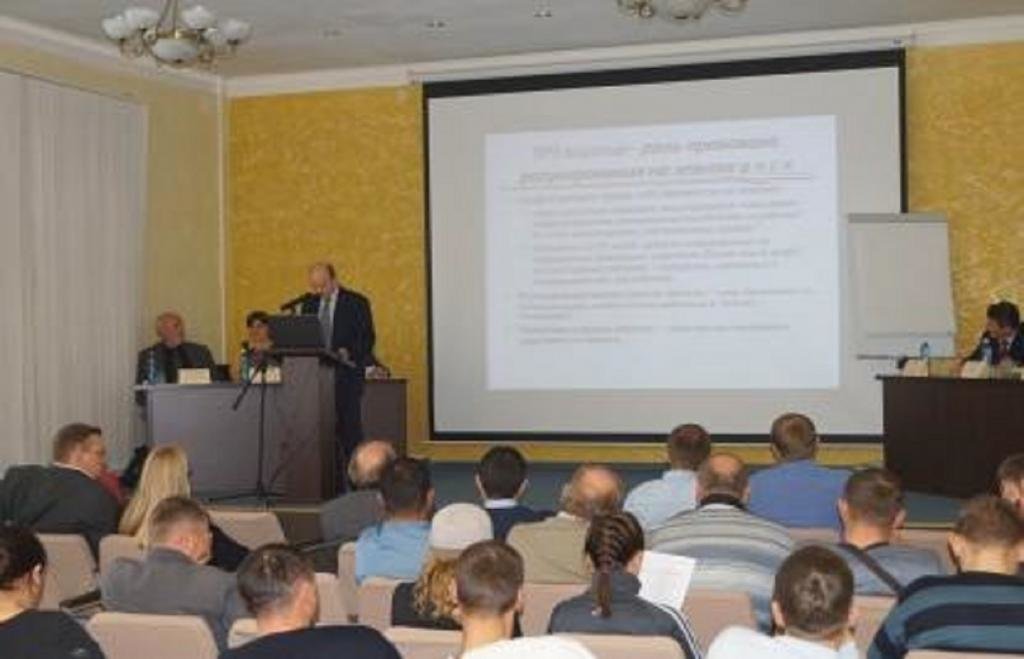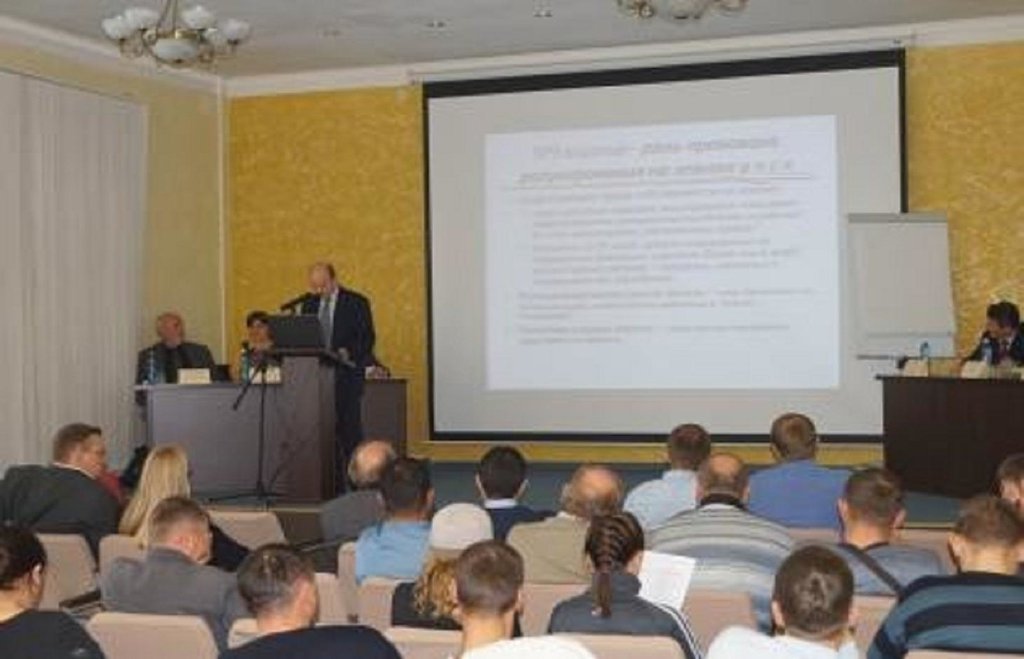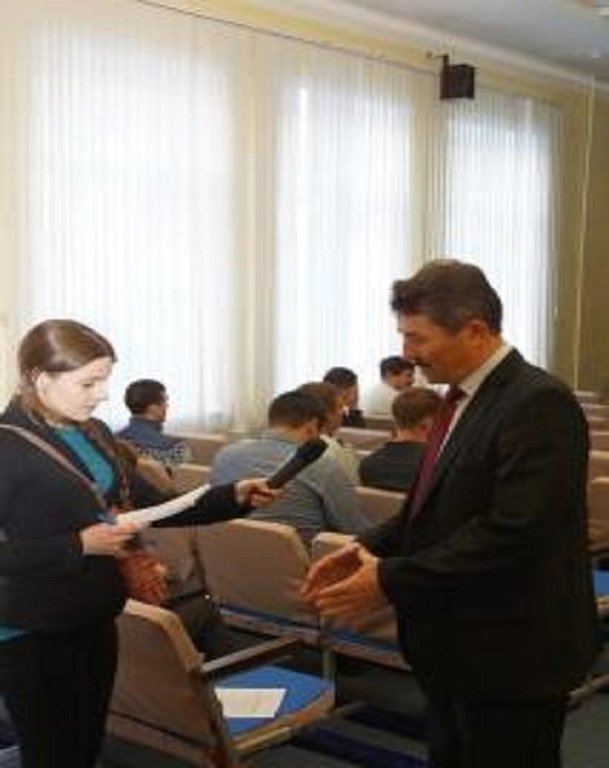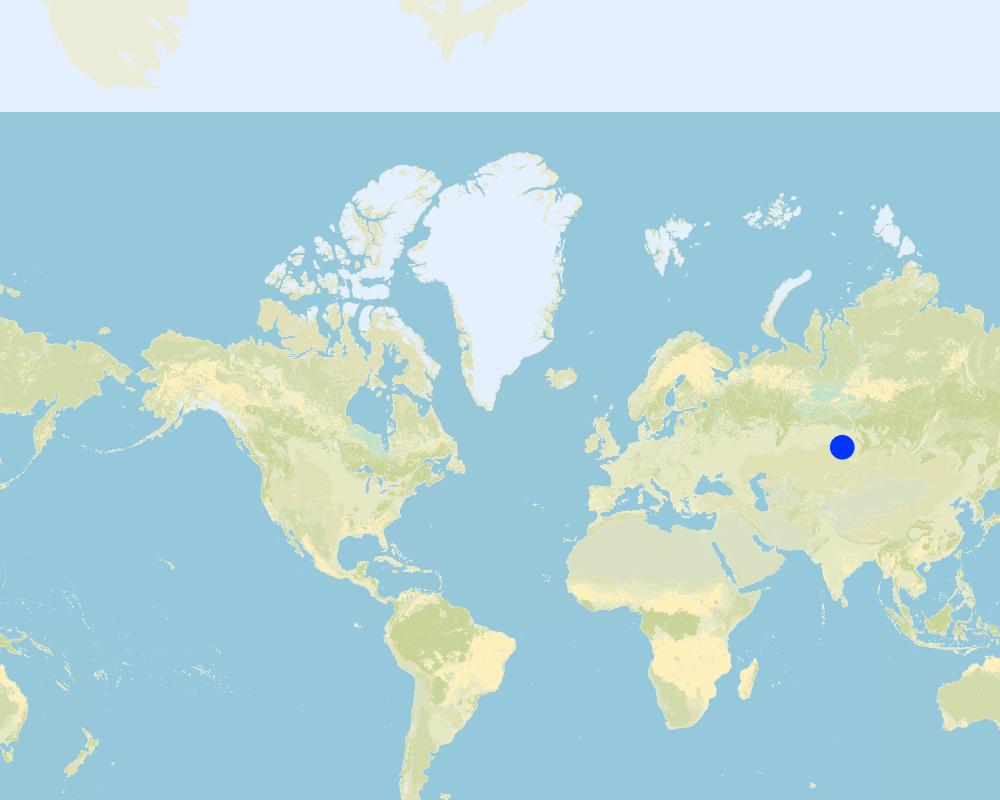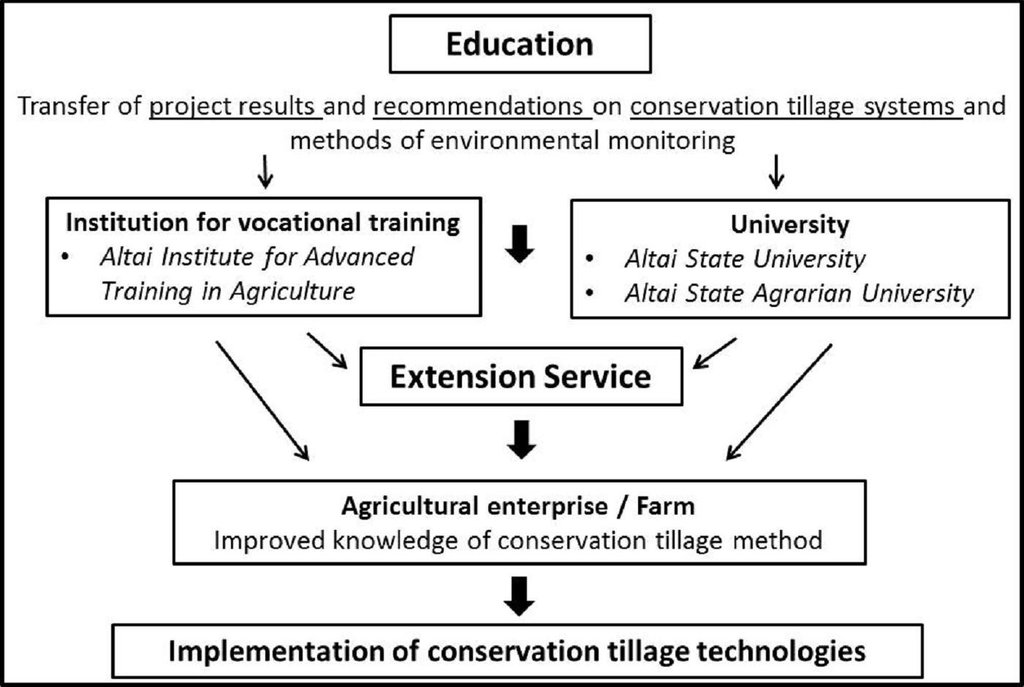Vocational Training [Federación Rusa]
- Creación:
- Actualización:
- Compilador: Peter Liebelt
- Editor: –
- Revisores: David Streiff, Deborah Niggli
Профессиональное обучение
approaches_2544 - Federación Rusa
Visualizar secciones
Expandir todo Colapsar todos1. Información general
1.2 Detalles de contacto de las personas de referencia e instituciones involucradas en la evaluación y la documentación del Enfoque
Especialista MST:
Hiller Karsten
Martin-Luther University Halle-Wittenberg
Especialista MST:
Herzfeld Thomas
Martin-Luther University Halle-Wittenberg
Especialista MST:
Illiger Patrick
Martin-Luther University Halle-Wittenberg
Especialista MST:
Jelinek Ladislav
Martin-Luther University Halle-Wittenberg
Especialista MST:
Wust Andreas
Leibniz-Institut für Länderkunde, Leipzig
Especialista MST:
Kasarjyan Milada
Martin-Luther University Halle-Wittenberg
Especialista MST:
Bavorova Miroslava
Martin-Luther University Halle-Wittenberg
Especialista MST:
Imamverdiyev Nizami
Martin-Luther University Halle-Wittenberg
Especialista MST:
Kley Dorothee
Martin-Luther University Halle-Wittenberg
Especialista MST:
Frühauf Manfred
Martin-Luther University Halle-Wittenberg
Especialista MST:
Bondarovich Andreay
Altai State University
Nombre del proyecto que facilitó la documentación/ evaluación del Enfoque (si fuera relevante)
Sustainable land management in the Russian steppes (KULUNDA / GLUES)Nombre del proyecto que facilitó la documentación/ evaluación del Enfoque (si fuera relevante)
Book project: Making sense of research for sustainable land management (GLUES)Nombre de la(s) institución(es) que facilitaron la documentación/ evaluación del Enfoque si fuera relevante)
Martin-Luther-University Halle-Wittenberg (Martin-Luther-University Halle-Wittenberg) - AlemaniaNombre de la(s) institución(es) que facilitaron la documentación/ evaluación del Enfoque si fuera relevante)
Altai State University (ASU) - Federación RusaNombre de la(s) institución(es) que facilitaron la documentación/ evaluación del Enfoque si fuera relevante)
Leibniz Institute for Regional Geography (IfL) - Alemania1.3 Condiciones referidas al uso de datos documentados mediante WOCAT
¿Cuándo se compilaron los datos (en el campo)?
26/07/2016
El compilador y la/s persona(s) de referencia claves aceptan las condiciones acerca del uso de los datos documentados mediante WOCAT :
Sí
1.4 Referencia/s al/los Cuestionario(s) de Tecnologías MST
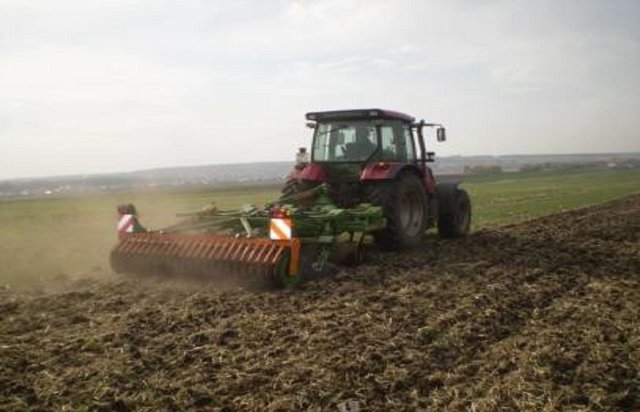
Minimum Tillage [Federación Rusa]
Minimum tillage is a one-pass operation combined with sowing, using a classic Russian seeder modified for seedbed preparation and soil mixing. It can include shallow stubble cultivation after harvesting.
- Compilador: Peter Liebelt
2. Descripción del Enfoque MST
2.1 Breve descripción del Enfoque
Regular in-service training of land use specialists and farm managers in the fields of sustainable land use management, and monitoring in the agrarian sector.
2.2 Descripción detallada del Enfoque MST
Descripción detallada del Enfoque MST:
Aims / objectives: By, as well as improved linkages of the agricultural consulting systems with universities and vocational training facilities,
Through targeted improved knowledge transfer, the Vocational Training Center is strengthening links between the agricultural consulting/ advisory systems, universities and vocational training facilities. The aim is to enhance capacity building and knowledge transfer for a better consultation / advisory system, especially. This concerns alternative conservation measures and SLM in rural areas. The centre and members of the different sub-projects of the KULUNDA project gave lectures covering up-to-date research results and on various topics, including SLM technologies (no-till and minimum tillage). Socio-economic and ecological impact was covered, as well as environmental monitoring. This took place at the ‘Barnaul Institute for Qualification in Agriculture’. These lectures are embedded into an existing training programme for young professionals within the agronomic service and extension service/ advisory service as well as heads of agricultural enterprises.
Through the targeted improved knowledge transfer between the agricultural consulting/ advisory systems, universities and vocational training facilities we want to strengthen the implementation of conservative conservation technologies in agricultural practice.
Methods: It is also planned to present project results on the topic of sustainable land management in the State Agrarian University in Barnaul, which is the main training centre for future agronomists. This presentation takes different forms – for example through poster presentations or conferences. The implementation courses material/ modules are partially running (for lectures at the Barnaul Institute for Qualification in Agriculture) or are under preparation. Furthermore, there is a plan to cooperate with the Altai State University to organise a seminar on the topic entitled “Laboratory analysis to investigate soil conditions”. Thus it helps to implement new methods of environmental monitoring into the current teaching program.
Stages of implementation: More recently, the project’s partner, the German company Amazone, has started an initiative of vocational training for young people in the region: these students are being given the opportunity to enhance their knowledge at the company’s production site in Samara and to learn about technical aspects of the two SLM technologies, namely no-till and minimum till.
Role of stakeholders: The measures are aimed at different stakeholder groups within the Altai Krai identified in the AKIS-Network (Agricultural Knowledge and Information System). The greatest importance is attached to the stakeholders of extension service and agricultural producers/ heads of agricultural enterprises because of the high level of dependency on the successful implementation of the SLM technologies on their knowledge and support. The managers who participated in advanced trainings are mainly from economically strong agricultural enterprises.
2.3 Fotos del Enfoque
2.5 País/ región/ lugares donde el Enfoque fue aplicado
País:
Federación Rusa
Región/ Estado/ Provincia:
Altai Krai
Especifique más el lugar :
Mikhaylovski district
Comentarios:
Area of the field test
Map
×2.6 Fechas de inicio y conclusión del Enfoque
Indique año del inicio:
2013
Año de conclusión (si el Enfoque ya no se aplica):
2016
2.7 Tipo de Enfoque
- tradicional/ local
2.8 Propósitos/ objetivos principales del Enfoque
The Approach focused mainly on SLM with other activities (Knowledge transfer and capacity building not only in the field of soil conservation but also in the resulting socioeconomic and environmental effects and ways to improve regional development in rural areas.)
Improvement of technology adoption through: Capacity building, training and knowledge transfer. Awareness raising.
The SLM Approach addressed the following problems: There is a lack of knowledge on current scientific findings regarding innovative agronomic methods like minimum and no-till and a lack of awareness concerning the importance of the conservation technologies for economic and ecological sustainable farming strategies. A big problem is that the system for advising farmers is not sufficient, although there is a state institution for this purpose. There is a lack of awareness about the importance of vocational training, and lack of international, scientifically-based expertise in the regional institution conducting vocational training.
2.9 Condiciones que facilitan o impiden la implementación de la/s Tecnología/s aplicadas bajo el Enfoque
normas y valores sociales/ culturales/ religiosos
- impiden
Insufficient acceptance by land users of new and externally developed methods. Historically-caused low levels of trust among farmers/ land users that, amongst others, limits the transfer of ‘good farming practices’.
Treatment through the SLM Approach: Awareness raising, training and knowledge sharing for environmental problems due to non-adapted farming systems.
Specifically targeted policies (e.g. provision of grants or credit for the establishment of producer groups) and awareness raising.
disponibilidad/ acceso a recursos y servicios financieros
- impiden
High cost of new minimum and no-till machinery and difficult access to credits. Budget limitations are proportionately greater with smaller farms (highly variable yields reduce farm profitability, limited access to external funds)
Treatment through the SLM Approach: In the training modules specialists were trained on how to improve the profitability, to work economically and rationally by implementing alternative conservation measures and SLM as well as by efficient personnel management in the agricultural enterprises.
entorno institucional
- impiden
Unfavourable framework conditions and low capacity of the administration to monitor the state of land and to enforce the soil protection law which would oblige land users to adopt conservation measures.
Treatment through the SLM Approach: The approach did not address this factor.
marco de trabajo legal (tenencia de tierra, derechos de uso de tierra y agua)
- impiden
Unclear land use rights. High share of rented land. Missing incentives to stimulate land users to adopt conservation practices. Secure land use rights motivates to more conscious care for the land and stimulates farmers to adopt better practices.
Treatment through the SLM Approach: Discussion of the options to strengthen the role of ‘State Redistribution of Funding’ in favour of funding land protection.
The existing land ownership, land use rights / water rights moderately hindered the approach implementation Our findings support the evidence that land ownership is rather a hindering factor for the farmers. It has several reasons. There are still some legislative and administrative weaknesses that limit the full execution of the ownership rights (non-defined borders, lacking cadastral registration of some plots, missing owners, etc.). When farmers face such difficulties, they are less willing to invest in the own land. Furthermore, around half of the land utilised in Altai krai is owned by the state (of that around 2 mil. hectares are administered by the Redistribution Fund). The conditions under which the land is provided do not require the farmers to adopt more sustainable land practices. As above mentioned, this would call for the strengthening of the land allocation criteria. Another aspect to be considered is the capacity of the state monitoring agency (State Veterinary and Phytosanitary Controls) and if it would be capable to control the compliance of the rules provided the land use conditions are stricter.
conocimiento de MST, acceso a apoyo técnico
- impiden
In Russia conventional/ traditional cultivation still prevails, although market for no-till technologies is fully developed and functional. Various machinery companies either have branches or production units in Russia.
Treatment through the SLM Approach:
3. Participación y roles de las partes interesadas involucradas
3.1 Partes interesadas involucradas en el Enfoque y sus roles
- usuarios locales de tierras/ comunidades locales
Farmers of the investigation area in the district Altai Krai
There are more men working in the area of crop production as women. More men participated
- especialistas MST/consejeros agrícolas
Advisers in the field of cropping systems
- gobierno nacional (planificadores, autoridades)
Ministry of Agriculture
- Staff member of the project
German and Russian scientists of the project
3.2 Involucramiento de los usuarios locales de tierras/ comunidades locales en las distintas fases del Enfoque
| Involucramiento de los usuarios locales de tierras/ comunidades locales | Especifique quién se involucró y describa las actividades | |
|---|---|---|
| iniciación/ motivación | interactivo | The embedded training measures modules are embedded in the already existing training program of vocational training centre in Barnaul. At the last seminar land users and specialists were the target audience. Interactive lectures (teaching modules) were held. The participants of the seminar were actively involved by asking questions as well as by intensive discussions. |
| planificación | ninguno | The planning of the approach was first of all project-internal in consultation with the head of the regional vocational training institute in Barnaul. |
| implementación | interactivo | Interactive lectures to agricultural consultants/ extension agents/ advisory services and farmers on latest findings and recommendations of the KULUNDA project. Following the lectures the participants could ask questions and discuss the various research results presented. In addition, brochures and USB-sticks containing project results and lectures were distributed. |
| monitoreo y evaluación | interactivo | Evaluation after the event through project intern discussions as well as interviews with regional stakeholder |
| Research | ninguno | The vocational training is mainly intended to inform the audience (target groups) about the scientific results and their application-specific relevance by the scientific project staff. The audience is not involved in research work. |
3.3 Flujograma (si estuviera disponible)
Descripción:
The chart is intended to show the importance of the vocational training by the 'Institute for advanced training in agriculture' concerning knowledge transfer and capacity building. Knowledge transfer takes place either directly or indirectly through the advisory service to the farmers. Due to the capacity building measures and resulting better knowledge of the farmers about conservation technologies this approach will better enable them to implement conservation technologies.
Autor:
Peter Liebelt
3.4 La toma de decisiones en la selección de Tecnología(s) MST
Especifique quién decidió la selección de las Tecnología/ Tecnologías a implementarse:
- principalmente por especialistas MST en consulta con usuarios de tierras
Explique:
The SLM specialists of the the KULUNDA project mainly make the decisions on the choice of the SLM technology in cooperation with the farmers.
Decisions on the method of implementing the SLM Technology were made by Project staff. At the beginning of the project a large interview campaign with relevant local stakeholders was conducted by the scientists of the KULUNDA-project. Based on the survey results, a decision on the implementation measures were made by the scientific staff on the German and Russian site with consultation with local stakeholder groups.
4. Apoyo técnico, fortalecimiento institucional y gestión del conocimiento
4.1 Construcción de capacidades / capacitación
¿Se proporcionó la capacitación a usuarios de tierras/ otras partes interesadas?
Sí
Especifique quién fue capacitado:
- usuarios de tierras
- personal de campo/ consejeros
Forma de capacitación:
- cursos
Temas avanzados:
Competitiveness of agricultural enterprises, ecologically and economically effective farm management through the use of resource-conserving crop production, costs for introducing modern tillage systems, personnel management, monitoring systems
4.2 Servicio de asesoría
¿Los usuarios de tierras tienen acceso a un servicio de asesoría?
Sí
Especifique si servicio proporcionado se realizó:
- en centros permanentes
Describa/ comentarios:
Name of method used for advisory service: Vocational training for land use specialists / advisers and land user; Key elements: Knowledge / exchange, Capacity building, Training of trainers
There is already mainly a governmental advisory structure. The consultants are able to make recommendations for soil conserving technologies. However, we have observed a missing international expertise and demand of consultation for the farmers.
4.3 Fortalecimiento institucional (desarrollo institucional)
¿Se establecieron o fortalecieron instituciones mediante el Enfoque?
- no
4.4 Monitoreo y evaluación
¿El monitoreo y la evaluación forman parte del Enfoque?
Sí
Comentarios:
Technical aspects were ad hoc monitored by project staff, government, land users through observations; indicators: information and discussion on the technical obervation results relating conservation technologies by the target groups
Technical aspects were ad hoc monitored by project staff, government, land users through measurements; indicators: information and discussion on the technical measurement results relating conservation technologies by the target groups
Economic / production aspects were ad hoc monitored by project staff, government, land users through observations; indicators: information and discussion on the economic obervation results relating economic parametres (margin profit and others) by the target groups
Economic / production aspects were None monitored by project staff, government, land users through measurements; indicators: information and discussion on the technical measurement results relating conservation technologies by the target groups
Management of Approach aspects were None monitored by None through observations; indicators: information and discussion on the management obervation results relating the approach by the target groups
There were no changes in the Approach as a result of monitoring and evaluation
There were no changes in the Technology as a result of monitoring and evaluation
4.5 Investigación
¿La investigación formó parte del Enfoque?
No
5. Financiamiento y apoyo material externo
5.1 Presupuesto anual para el componente MST del Enfoque
Si no se conoce el presupuesto anual preciso, indique el rango:
- 2,000-10,000
Comentarios (ej. fuentes principales de financiamiento/ donantes principales):
Approach costs were met by the following donors: international (German Ministry of Education and Research, BMBF): 100.0%
5.2 Apoyo financiero/material proporcionado a los usuarios de tierras
¿Los usuarios de tierras recibieron financiamiento/ apoyo material para implementar la Tecnología/ Tecnologías? :
Sí
Si respondió sí, especifique el tipo o los tipos de apoyo, condiciones y proveedor(es) :
The Altai Institute for Advanced Training in Agriculture that is publicly founded provided personnel staff, an auditorium and hast made the promotion for the event.
5.3 Subsidios para insumos específicos (incluyendo mano de obra)
- otro
| Otro (especifique) | En qué grado | Especifique los subsidios |
|---|---|---|
| preparation of training material | totalmente financiado |
Comentarios:
The approach of vocational training was only to inform the land users without financial inputs in equipment and others.
5.4 Crédito
¿Se proporcionó crédito bajo el Enfoque para actividades MST?
No
6. Análisis de impacto y comentarios de conclusión
6.1 Impactos del Enfoque
¿El Enfoque ayudó a los usuarios de tierras a implementar y mantener Tecnologías MST?
- No
- Sí, un poco
- Sí, moderadamente
- Sí, mucho
The approach vocational training helps to improve the quality of advisory service and to inform directly the land user. It have been shown that the vocational training (Institute for Advanced Training in Agriculture) is a suitable way for knowledge transfer. The higher knowledge of the land user and land use specialists / advisers help to implement new conservation technologies. Vocational training of course is not a new invention but the aim of the project initiated learning modules was to present information that are up-to-date and on in the field of con
¿El Enfoque empoderó a grupos en desventaja social y económica?
- No
- Sí, un poco
- Sí, moderadamente
- Sí, mucho
The implementation of the technology is not primarily aimed at these issues.
¿El Enfoque mejoró cuestiones de tenencia de tierra/ derechos de usuarios que obstaculizaron la implementación de la Tecnologías MST?
- No
- Sí, un poco
- Sí, moderadamente
- Sí, mucho
The problem is unlikely to be overcome in the near future.
Did other land users / projects adopt the Approach?
- No
- Sí, un poco
- Sí, moderadamente
- Sí, mucho
Did the Approach lead to improved livelihoods / human well-being?
- No
- Sí, un poco
- Sí, moderadamente
- Sí, mucho
By implementing the new conservation technologies the sustainability of farming systems in both the ecological and the economic sense increases. therefor the technologies are able to improve human well-being especially in rural areas where agriculture has a great importance for livelihood and human well-being. The technologies help to protect soil as production base for farming. Whether the population participate on the increase of profit depends on the management of farm enterprises that decide on further investments for instance in salary or social projects.
Did the Approach help to alleviate poverty?
- No
- Sí, un poco
- Sí, moderadamente
- Sí, mucho
The implementation of the technologies min till and no till protect the soil as an important living and economic basis
6.2 Motivación principal del usuario de la tierra para implementar MST
- producción incrementada
To minimize fluctuations in yield and to secure yield through a higher sustainability
- incremento de la renta(bilidad), proporción mejorada de costo-beneficio
- carga de trabajo reducida
The reduction of workload is important especialy in terms of the large farm sizes.
- pagos/ subsidios
- afiliación al movimiento/ proyecto/ grupo/ redes
Affiliation with the KULUNDA project
6.3 Sostenibilidad de las actividades del Enfoque
¿Pueden los usuarios de tierras sostener lo que se implementó mediante el Enfoque (sin apoyo externo)?
- sí
Si respondió que sí, describa cómo:
The Altai Institute of vocational training can continue with the help of learning modules and various information materials that we prepared as implementation products under the project.
6.4 Fortalezas/ ventajas del Enfoque
| Fuerzas/ ventajas/ oportunidades desde la perspectiva del usuario de la tierra |
|---|
| To have a platform for discussion and knowledge exchange with different national stakeholder groups as well as international scientists (How to sustain/ enhance this strength: Regular meetings for knowledge exchange.) |
| To get information about the latest international ‘trends’ in agriculture that aim at economically effective, resource-saving and environment-friendly cropping management (How to sustain/ enhance this strength: Regular presentation of innovations and new results that are up to date and on international high level.) |
| Fuerzas/ ventajas/ oportunidades desde la perspectiva del compilador o de otra persona de referencia clave |
|---|
| Capacity building (How to sustain/ enhance this strength: Through better linkage between the actors of different stakeholder groups (see point 1) and by regular teaching and consultation) |
| Better knowledge transfer (How to sustain/ enhance this strength: By presenting practice-oriented project findings, which show the current state of research.) |
|
Improved linkage between different stakeholder groups like specialists, advisers and farmers/ land users (How to sustain/ enhance this strength: By regular joint vocational workshops and seminars on education, research, consulting, needs of end users with actors of the Agricultural Knowledge and Information System network in the Altai region. For the realization of this purpose the regional “Altai Vocational Training Centre in Barnaul was and can be used as a platform. ) |
| Better consultation of land users and specialists (How to sustain/ enhance this strength: By presenting use-oriented project findings, which present the current state of research as well as discussions about the presented issues.) |
6.5 Debilidades/ desventajas del Enfoque y formas de sobreponerse a ellos
| Debilidades/ desventajas/ riesgos desde la perspectiva del usuario de la tierra | ¿Cómo sobreponerse a ellas? |
|---|---|
| For land user it takes a lot of effort like high costs and time to visit the event in the capital Barnaul. |
| Debilidades/ desventajas/ riesgos desde la perspectiva del compilador o de otra persona de referencia clave | ¿Cómo sobreponerse a ellas? |
|---|---|
| In contrast to the field seminar the vocational training is more theoretical, which is less attractive for farmers | Combination of different implementation measures like vocational training for the theoretical background and the field seminar to show the opportunities of technology implementation in practice. |
7. Referencias y vínculos
7.1 Métodos/ fuentes de información
- visitas de campo, encuestas de campo
- entrevistas con usuarios de tierras
Vínculos y módulos
Expandir todo Colapsar todosVínculos

Minimum Tillage [Federación Rusa]
Minimum tillage is a one-pass operation combined with sowing, using a classic Russian seeder modified for seedbed preparation and soil mixing. It can include shallow stubble cultivation after harvesting.
- Compilador: Peter Liebelt
Módulos
No se hallaron módulos


